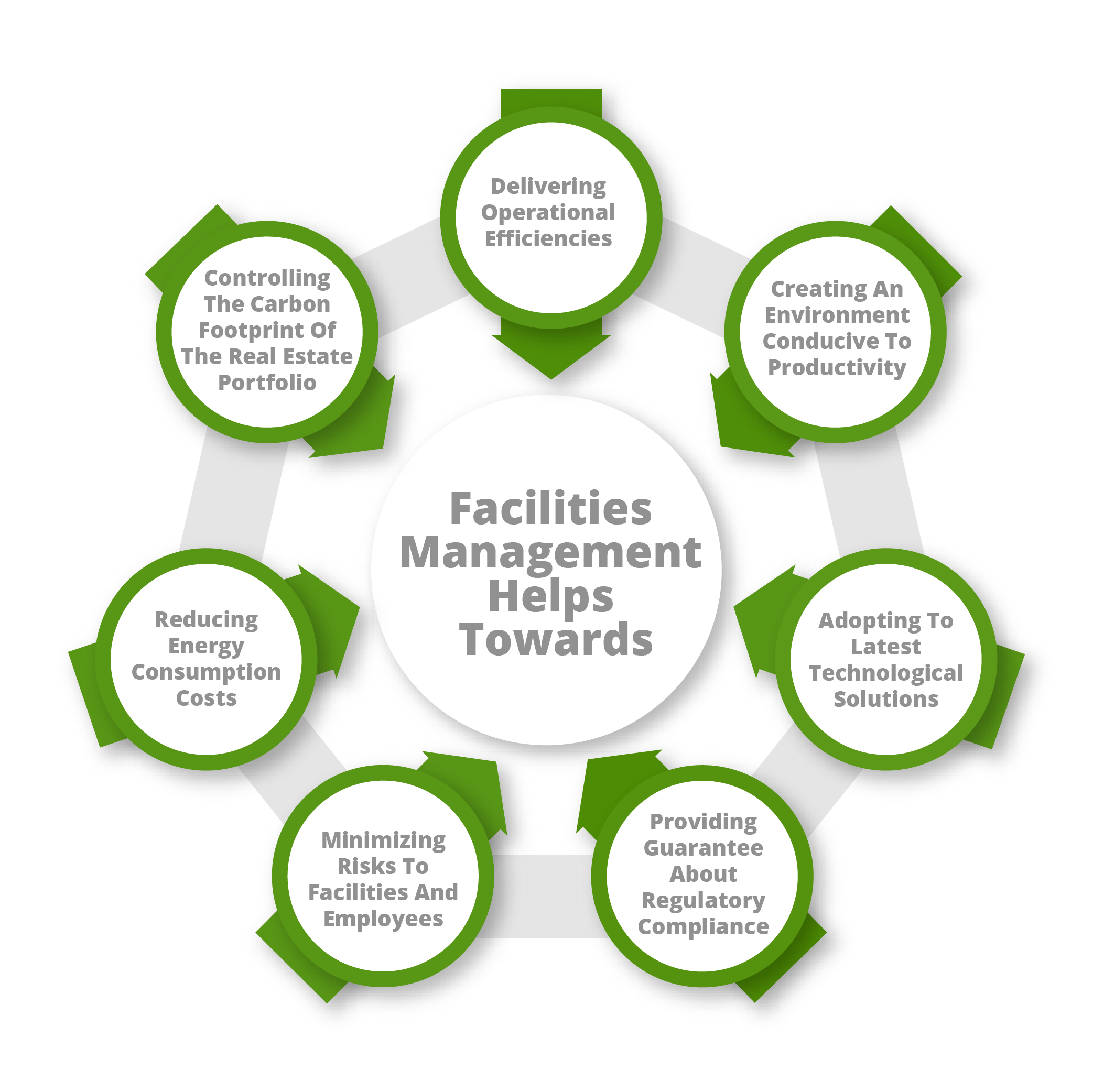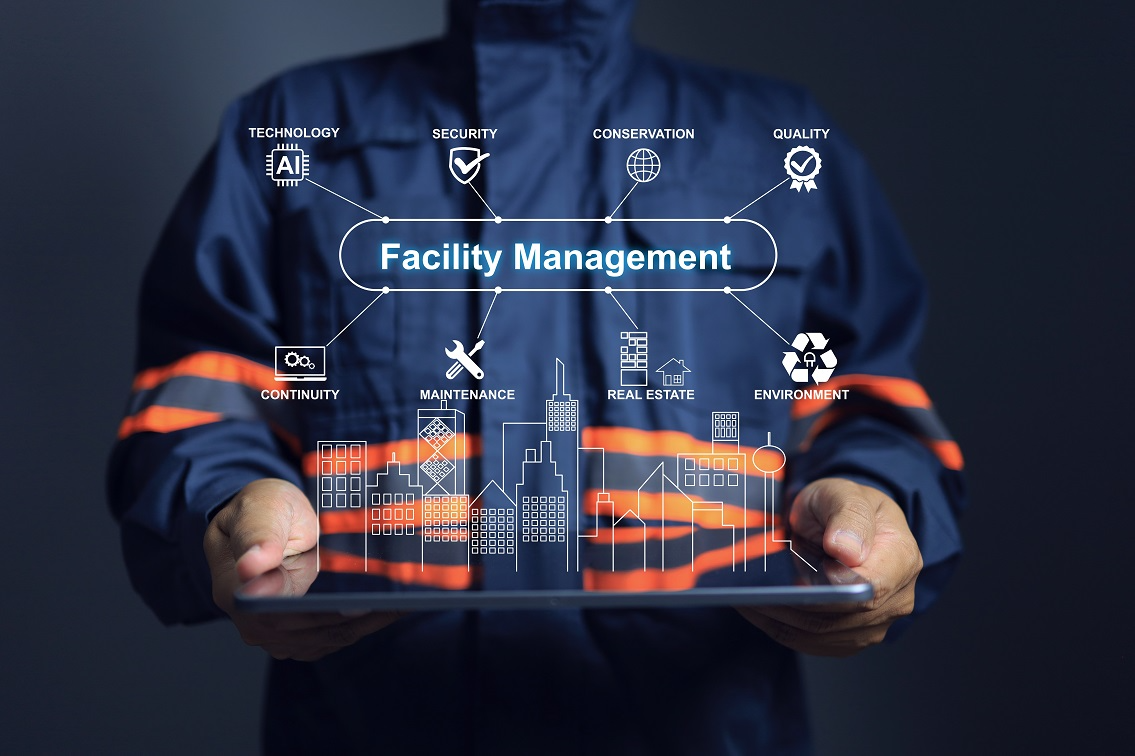The Role of Total Facility Management in Ensuring Health and Safety and Legal Adherence
Leading Benefits of Total Facility Management for Streamlined Workflow
Total Facility Management (TFM) represents a strategic strategy to enhancing functional effectiveness by integrating various services, such as upkeep and safety and security, under a unified management structure. This combination not only reduces redundancies yet also leverages data analytics for notified decision-making and predictive maintenance. TFM promotes structured communication among stakeholders, lining up operations with wider business goals. The concern stays: what specific benefits can organizations harness from taking on TFM, and just how might these advantages transform their functional landscape?
Enhanced Functional Efficiency
Enhanced operational effectiveness is a primary advantage of implementing total facility management (TFM) techniques. TFM encompasses an extensive strategy to taking care of a facility's sources, procedures, and infrastructure, eventually improving operations. By settling numerous services-- such as maintenance, cleaning, security, and area management-- TFM boosts and reduces redundancies coordination among different functional features.
The integration of technology more magnifies this performance. Advanced facility management systems provide real-time information analytics, making it possible for facility managers to make enlightened decisions that enhance operations and source allocation. Predictive upkeep techniques, as an example, prepare for devices failings prior to they take place, decreasing downtime and expanding asset lifespan.
Additionally, TFM advertises standardized processes across various departments, making sure uniformity and quality in solution delivery. This harmony reduces operational interruptions and fosters a more joint workplace. Therefore, staff members can concentrate on their core responsibilities, driving productivity and enhancing overall efficiency.

Expense Decrease and Financial Savings
Applying total facility management (TFM) not only enhances functional performance yet also considerably adds to cost decrease and savings. By settling various services under a solitary management structure, companies can get rid of redundancies and simplify procedures, thus minimizing functional expenses. TFM makes it possible for better procurement methods, enabling firms to work out bulk acquiring arrangements with vendors and provider, causing reduced rates.
In addition, TFM highlights precautionary maintenance, which reduces unexpected breakdowns and expands the life expectancy of vital tools. This proactive technique not only reduces fixing costs however likewise enhances the dependability of facilitiess, making certain uninterrupted procedures. In addition, energy performance campaigns, usually a crucial focus of TFM, cause substantial cost savings on energy costs, as facilitiess are enhanced for decreased energy intake.
Improved Source Management
Efficient source management is a foundation of total facility management (TFM), allowing companies to maximize the use of their possessions and labor force. By executing TFM approaches, companies can adequately analyze their resource appropriation, making sure that every possession is utilized efficiently and successfully. This all natural strategy permits for the identification of underperforming sources and the possibility for reallocation or enhancement.
Additionally, TFM assists in the combination of technology for real-time tracking of sources, which aids in forecasting check my blog maintenance needs and stopping expensive downtime. By leveraging data analytics, organizations can make enlightened decisions concerning resource release, ultimately improving performance and decreasing waste.
Moreover, TFM promotes a culture of continual improvement, motivating groups to frequently evaluate and refine their resource management techniques. Total Facility Management. This aggressive stance not just minimizes functional disturbances however additionally fosters technology, as staff members are equipped to recommend improvements based upon their direct experiences with source use
Streamlined Communication Channels
In total facility management, streamlined communication channels play an important duty in promoting cooperation and performance across teams. Efficient interaction ensures that all stakeholders, consisting of facility supervisors, upkeep team, and provider, are aligned with organizational goals and functional requirements. By establishing clear lines of communication, teams can quickly resolve concerns, share updates, and apply remedies, thus minimizing downtime and enhancing performance.
With systematized communication systems, details is easily available, enabling real-time updates on maintenance demands, source allotment, and project timelines. This transparency not only minimizes misconceptions however also empowers workers to make enlightened choices quickly. Structured communication promotes far better sychronisation throughout emergencies, ensuring that all workers are informed and can respond immediately.

Boosted Concentrate On Core Activities
A key benefit of total facility management is the enhanced concentrate on core tasks, permitting companies to focus on their main service objectives - Total Facility Management. By contracting out non-core functions such as maintenance, cleaning, and safety, business can reroute their sources and power towards tactical efforts that directly add to their affordable benefit and growth
Total facility management incorporates different functional jobs under a single umbrella, fostering performance and minimizing redundancy. This loan consolidation not only enhances procedures however also improves responsibility, making sure that every facet of the facility runs harmoniously without drawing away focus from what absolutely matters-- core company functions.
Furthermore, this method allows workers to devote their time and efforts to tasks that drive technology and improve client complete satisfaction, instead than obtaining bogged down by operational difficulties. With a reliable facility management companion dealing with day-to-day operations, companies can accomplish higher Extra resources agility, react swiftly to market adjustments, and maintain a sharper concentrate on their goal.
Inevitably, increased emphasis on core activities causes enhanced general efficiency, enabling organizations to strengthen their market position and satisfy their tactical objectives better. - Total Facility Management
Final Thought
In conclusion, Total Facility Management substantially improves operational performance by settling important solutions and leveraging information analytics for educated decision-making. Cost decreases and enhanced resource management contribute to overall financial savings, while streamlined interaction networks foster collaboration amongst stakeholders.
Total Facility Management (TFM) stands for a tactical method to enhancing operational performance by incorporating various solutions, such as maintenance and protection, under a unified management structure.Improved functional performance is a primary benefit of applying total facility management (TFM) techniques. Advanced facility management systems provide real-time information analytics, enabling facility supervisors to make educated choices that enhance operations and resource allowance.Executing total facility management (TFM) not only boosts functional effectiveness but additionally substantially adds to set you back decrease and cost savings.Reliable source management is a keystone of total facility management (TFM), making it possible for companies to optimize the usage of their properties and workforce.